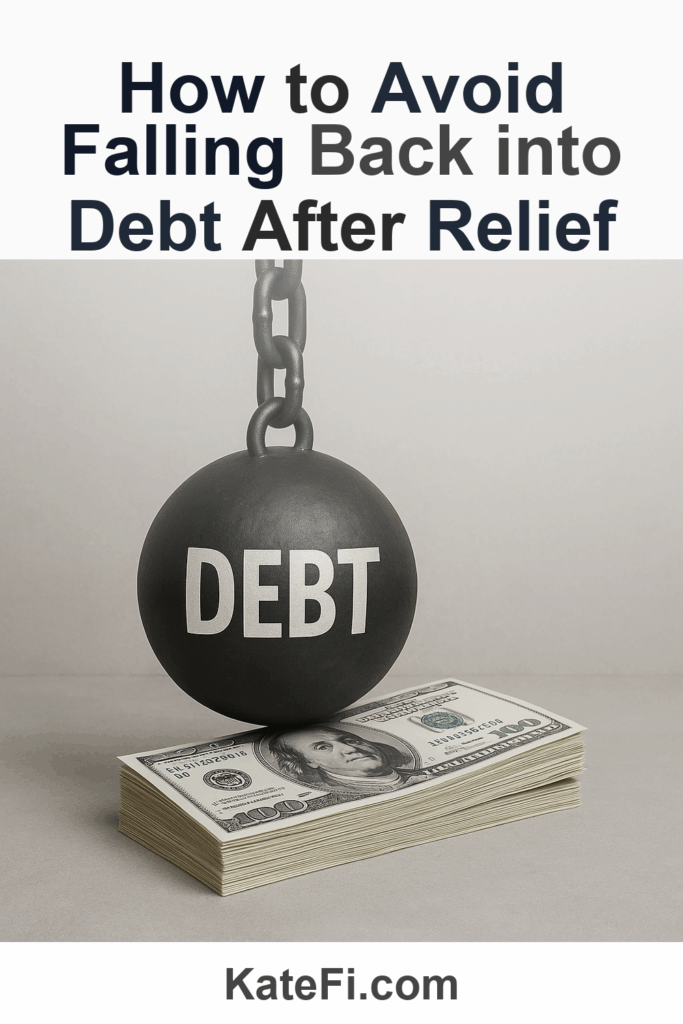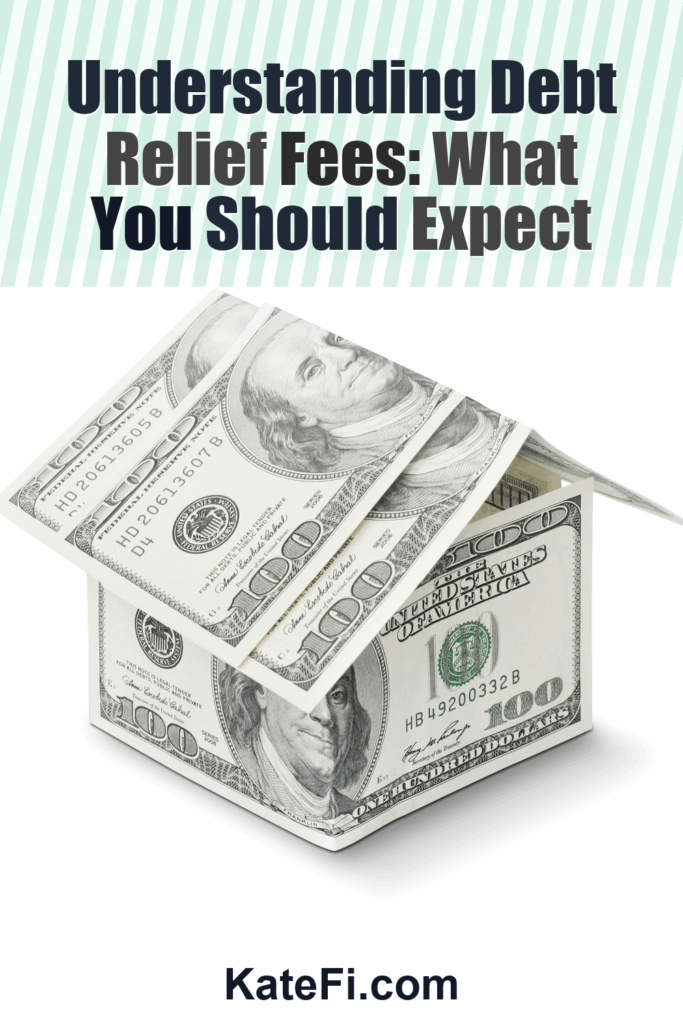The Pros and Cons of Debt Management Plans: What to Consider
When life takes an unexpected turn—perhaps a medical emergency or a job loss—the weight of debt can quickly spiral out of control. Emily, a 32-year-old graphic designer from Austin, Texas, knows this all too well. Like many others, she found herself facing mounting credit card bills and a loan that felt impossible to repay. After several sleepless nights and conversations with family, she stumbled upon the option of a Debt Management Plan (DMP).
Love our content? Show your support by following us — pretty please!🥺
FOLLOW ON PINTEREST
Hi! I’m Kate, the face behind KateFi.com—a blog all about making life easier and more affordable.
Emily’s journey highlights the crucial balance between managing debt effectively and considering the potential impact on her financial future. In this post, we will explore the pros and cons of DMPs through Emily’s narrative, lessons learned, and provide actionable questions you should ask a counselor before making a decision. Let’s delve deeper into Emily’s experience and learn what may work best for you.
Understanding Debt Management Plans
What You’ll Learn on the Call
- Estimated timeline and monthly payment range
- How credit may be affected in the short term
- What documents to gather to move faster
Not available in IL, KS, OR, TN, UT, WV.
Debt Management Plans are structured repayment plans facilitated by credit counseling agencies, aimed at helping individuals manage their unsecured debts, such as credit cards or medical bills. Participants typically make a single monthly payment to the counseling agency, which in turn disburses funds to creditors.
Pros of Debt Management Plans
- Lower Interest Rates: Credit counseling agencies often negotiate lower interest rates with creditors. Emily discovered that her DMP reduced her average interest rate from 22% to just 9%. This made her payments more manageable, allowing her to pay off debt more quickly.
- Simplified Payments: By consolidating her debts into one monthly payment, Emily no longer had to juggle multiple bills. This streamlined approach made budgeting far more accessible and less stressful.
- Financial Education: Many credit counseling agencies provide educational resources, empowering individuals like Emily to better understand personal finance and avoid similar pitfalls in the future.
- No Bankruptcy Marks: Opting for a DMP can help avoid the long-term negative effects of bankruptcy on your credit report, making it an attractive option for those looking to maintain their financial standing.
Cons of Debt Management Plans
- Potential Fees: While DMPs can lower monthly payments, they might involve enrollment fees or monthly maintenance charges. Emily learned to clarify any potential fees upfront, ensuring she knew exactly what to expect.
- Credit Impact: Enrolling in a DMP may result in a temporary drop in credit scores due to closing old accounts. Emily had to weigh the immediate benefits of lower payments against her long-term credit health.
- Not All Debts Covered: A DMP primarily addresses unsecured debt. Emily found herself struggling with an outstanding student loan, which remained untouched by the DMP.
- Commitment Required: DMPs typically span three to five years. For Emily, committing to a plan meant adjusting her lifestyle significantly, prioritizing debt repayment over some luxuries she previously enjoyed.
✅ See If You Qualify for Debt Relief
Is a Debt Management Plan Right for You?
Understand pros/cons of settlement vs consolidation vs DMP for your exact mix of debts.
Not available in IL, KS, OR, TN, UT, WV.
As Emily assessed her situation, she realized that understanding her financial health was key to deciding if a DMP was the right choice. Here are a few essential questions to ask when consulting a credit counselor:
- What are the associated fees with the DMP?
- How will my credit score be affected during and after the program?
- What types of debt are eligible for inclusion in the plan?
- How long will it take to complete the program, and how will it fit into my budget?
- What resources and educational support will I receive throughout the process?
A reputable credit counseling agency should be transparent and provide detailed answers to these inquiries. Remember, Emily wished she had asked more questions upfront, ensuring a better understanding of her options.
When to Consider Bankruptcy Consultations
Lower Your Unsecured Debt
If you have $5,000+ in credit card or personal loan debt, a free consult can review options like settlement or hardship plans.
- One-on-one call to review your debts and goals
- See potential monthly payment reductions
- No obligation to enroll
Not available in IL, KS, OR, TN, UT, WV.
While a DMP can be an excellent option for some, it’s essential to acknowledge that it may not suit everyone. There are cases where consulting with a bankruptcy attorney is the more appropriate route. For Emily, the possibility loomed large when she assessed her debts against her income. She had already made some progress through the DMP, but found herself still drowning in student loans.
Indicators for Considering Bankruptcy:
- Debt Amount: If your unsecured debt is overwhelming compared to your income, bankruptcy may be a viable solution.
- Persistent Harassment from Creditors: If creditors are pursuing collections aggressively, filing for bankruptcy could provide immediate relief.
- Inability to Maintain Living Expenses: If you’re struggling to pay essential living expenses due to debt obligations, consulting a bankruptcy attorney might be necessary.
Before proceeding with a bankruptcy filing, consider having a comprehensive consultation to review your financial standing and explore all options available to you.
✅ See If You Qualify for Debt Relief
Checklists for Assessing Your Situation
When exploring options like a DMP or bankruptcy, being organized is crucial. Below are checklists to ensure you gather everything necessary for an informed discussion with a counselor or attorney:
Documents to Gather:
- A comprehensive list of debts (including balances and interest rates)
- Income statements (pay stubs, tax returns)
- Monthly expenses (utilities, groceries, and any other essentials)
- Credit reports (to understand current standing)
Questions to Ask a Counselor:
- How long have you been helping clients with DMPs?
- Can you provide references or testimonials from past clients?
- What happens if I can’t meet my monthly payment?
- How do you support clients in staying on track with their repayment plan?
Organizing this information helps ensure your consultation goes smoothly and that you fully understand your financial landscape.
Weighing Your Options: A Summary
As Emily discovered, navigating debt is rarely straightforward. It involves assessing options like DMPs and understanding when bankruptcy may be necessary. Here’s a concise comparison to consider:
| Aspect | Debt Management Plans | Bankruptcy |
|---|---|---|
| Impact on Credit | Temporary dip due to closed accounts | Significant, remains for years |
| Fees | May include administrative costs | Legal fees vary |
| Debt Types | Unsecured debt only | Can include secured and unsecured debt |
| Length of Process | 3-5 years | Generally resolved in 4-6 months |
| Educational Resources | Often provided | Limited educational resources |
Both options require careful thought and consideration. As you explore what best fits your financial needs, it’s crucial to consult with a professional who can provide guidance tailored to your situation.
✅ See If You Qualify for Debt Relief
As you contemplate your financial future, remember the journey isn’t solely about the numbers. It’s about reclaiming your peace of mind and building a path to a more secure tomorrow.
Important: This content is for education only—not legal, tax, or financial advice. Results and eligible programs vary by situation and state. Fees apply if you enroll and complete a program. Debt relief can affect credit; missed payments may lead to collections/lawsuits. Not available in IL, KS, OR, TN, UT, WV.






















